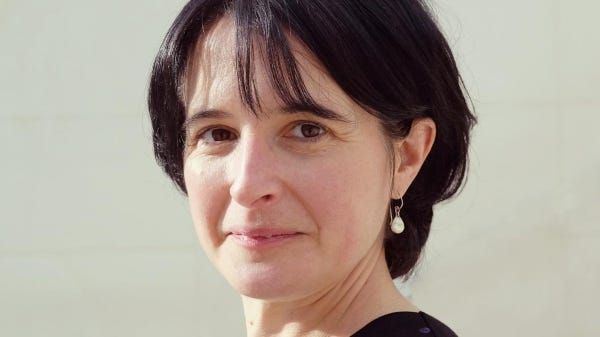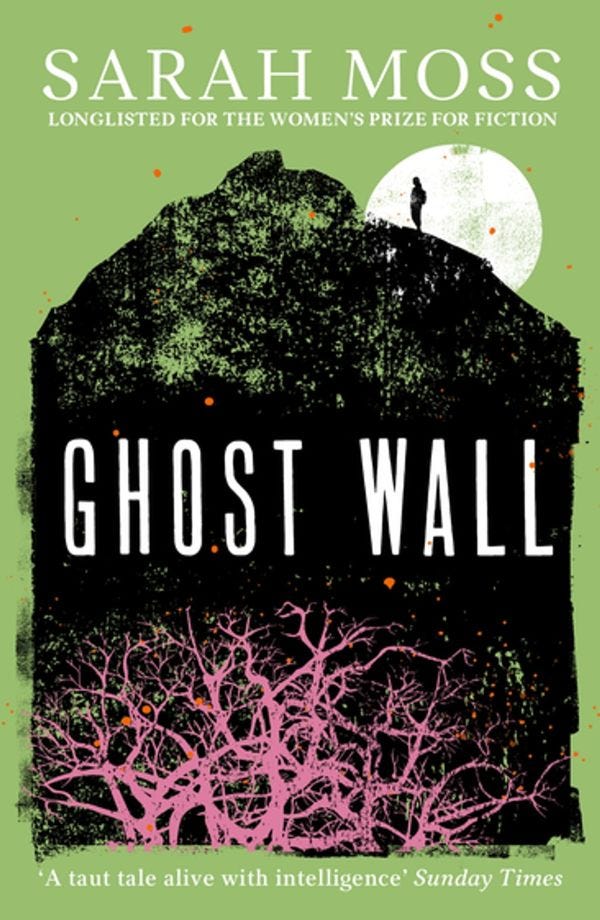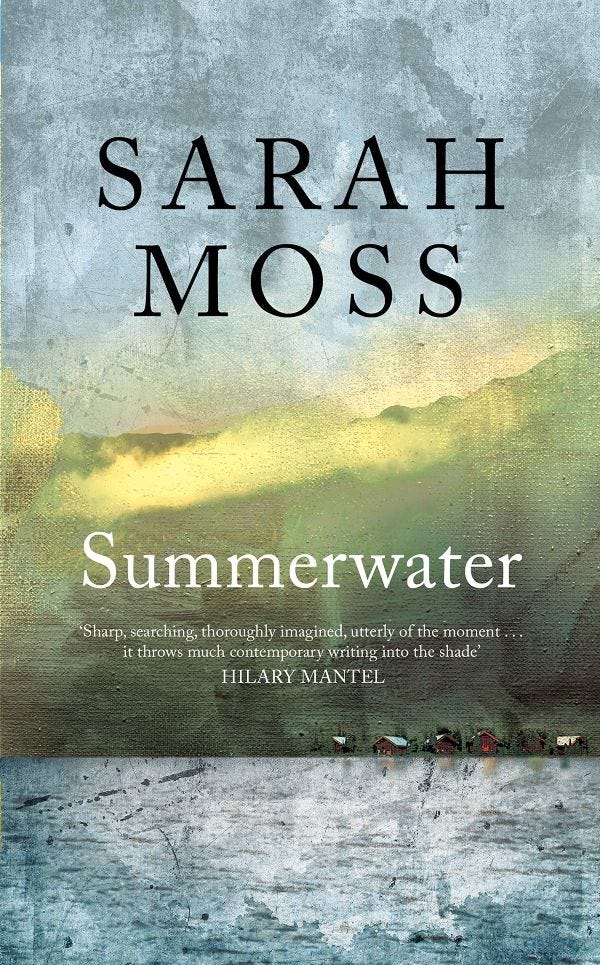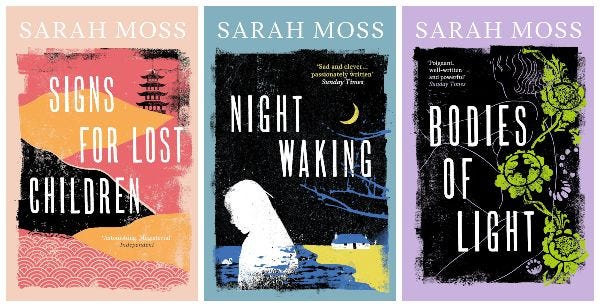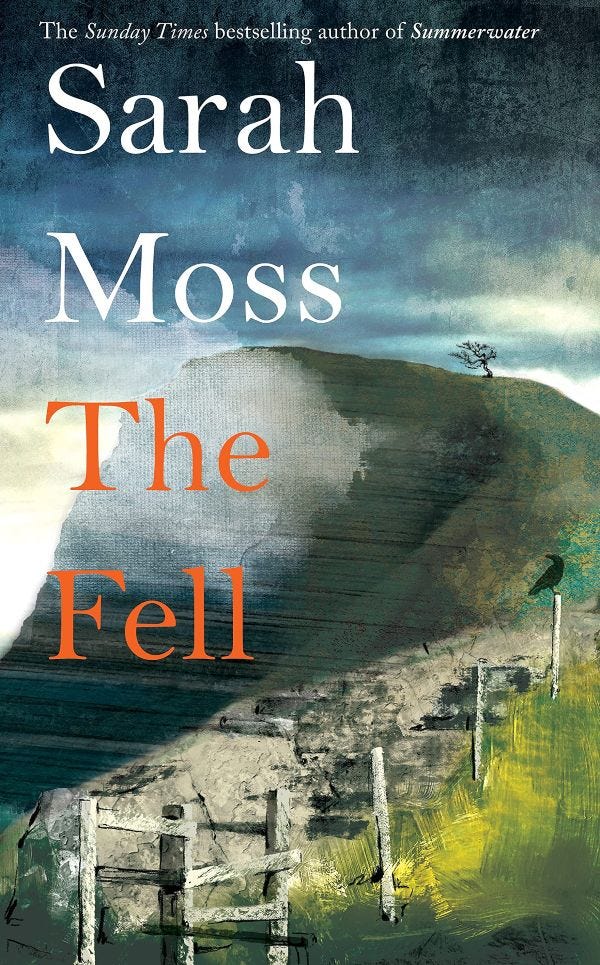The magic of Sarah Moss 📚📖💫
Why she should go straight to the top of your TBR pile.
Make some room on your bookshelf, in this week’s issue, Sian’s diving into the novels of one of her favourite authors.
There’s something truly special in an author that can make you want to read their entire back catalogue. To put every book on your holiday reading list, to ask for the latest at Christmas. To even consider breaking your firm “no hardbacks” rule for. For me that author is Sarah Moss (pictured above). Her entire collection lines a shelf by my desk, I don’t think there’s a living author I admire more.
Moss’s books have been nominated for the Wellcome Prize three times. Her novel Ghost Wall – about a 17-year-old girl’s relationship with her violent father, who has an unhealthy obsession with the Iron Age and human sacrifice – is perhaps her best-known work. It was longlisted for the The Ondaatje Prize and the 2019 Women’s Prize.
There is an art to holding her in the place she is entering now, on the edge of the water-earth, in the time and space between life and death, too late to return to the living and not time, not yet, not for a while, to be quite dead.
Ghost Wall
Family dynamics and remote communities are something that Moss plays with a lot. She expertly juggles both in Ghost Wall, taking an unusual situation and heightening the tension, which makes for a great introduction to her work. She shines in brevity – Ghost Wall is enormously punchy for a book that’s only 150 pages long.
Where Moss really excels is her piercing portrayal of women. Even in The Tidal Zone, which is narrated by a man who wakes to a call telling him that his daughter’s heart has stopped, female voices are still prominent throughout – in their silence, their actions, their missingness. In Summerwater, a novel set on a holiday park in Scotland over a single day of torrential rain, a woman goes for an early morning run (“feet pattering, heart and lungs surprised, labouring. Cold water on bed-warm skin”), and an internal monologue lays bare her entire life. In it, mundanity comes alive.
Every detail is pulled into the fore. In the midst of her beautiful prose, Moss has an uncanny way of telling the truth. It stops you in your tracks and makes you scan back so you can enjoy it again. “Stories have endings; that's why we tell them, for reassurance that there is meaning in our lives”, she writes in The Tidal Zone. Moss puts the smallest things under a spotlight. She doesn’t make them bigger than they are, she makes you notice things that were always there. Even a silver bracelet becomes so much more.
While The Tidal Zone and Summerwater are standalone books, three of Moss’s novels make up what could be called a loose trilogy. Bodies of Light, Signs for Lost Children, and Night Waking all involve a Victorian family, namely sisters Ally and May Moberley. Each book is wildly different, set at various points in history, but their common themes – the inner thoughts of women and their place in the world – brings them together. And throughout, Moss never veers far from the landscape, always connecting her characters to nature and earth, something bigger than them.
“The lightening of her very bones, the slowing of her dancing heart as the air of this place fills her lungs and her blood. The wind off the sea, the watery colours of a summer night in the far west where nightfall is postponed almost until morning.”
Signs for Lost Children.
Despite their beauty, Moss’s books can be hard going. They’re dense, even when short. Rather light on plot. I’ve never finished Night Waking – where Anna Bennett is sleep deprived from looking after her two young boys a remote Scottish island, as her husband prioritises his own research over his family and his wife’s career. Reading something so acute about motherhood and its impact on a woman’s identity can feel a bit like pressing on a bruise. Even when Moss is writing the past, she is every bit the contemporary novelist, shining a mirror up to society – and frequently women’s position in it – sometimes I want a lighter train journey read.
I can understand why even avid Moss fans might shy away from her latest novel, The Fell. A book about the pandemic feels, perhaps, too soon – I suspect it’s one that people will return to in a couple of years. It’s actually familiar territory for Moss – her debut novel Cold Earth was about a group of researchers on Greenland cut off from the world as a pandemic spreads. Against The Fell’s backdrop of the Peak District, there are few authors who could write about so deftly about the need for “a sip of outside”. Moss has talked a lot about the lack of compassion around lockdown and instead she focusses on community. The book is one of real empathy.
While Moss might be drawn to rather bleak topics, there’s always a gentle wit and warmth in her books (“looking as always for food and mischief”). The common thread throughout her work is exploring how people might react when they are pushed to their limits. Claustrophobia, the brink of death, unrelenting rain, a debilitating lack of sleep – Sarah Moss’s remarkable skill is in toying with that tension, letting her characters teeter on the edge.
And sometimes, they fall.
A rolling stone: Names For The Sea | These Our Monsters | Scott’s Last Biscuit.
This week we’ve been to the seaside! Sian has been hanging out in a beach hut in West Sussex and Laura has been playing on the penny falls in Norfolk. Like what we do? Buy us a cuppa.



